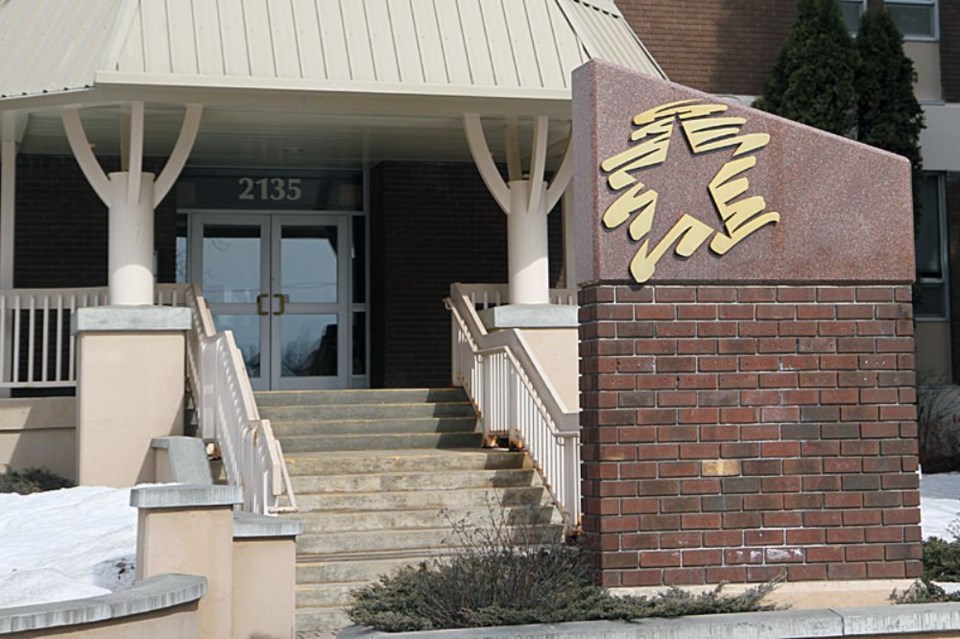THUNDER BAY – Teachers at four city high schools could be on strike by the end of the school year.
That was a threat made by Ontario Secondary Schools Teachers’ Federation president Paul Elliott at the union’s annual general assembly on Saturday, where he said high schools teachers at a number of school boards could walk off the job by the end of April.
The union has filed notice for conciliation against seven Ontario boards, including the Lakehead District School Board. That is an early step towards the union putting itself in a legal strike position.
“This is to say to the government and to school boards of this province that our patience has run out and that it’s no longer acceptable for them to treat us like our work doesn’t matter,” Elliott told a roomful of union members in a clip aired by CTV News.
Any job action would affect teachers and occasional teachers at Westgate Collegiate and Vocational Institute, Sir Winston Churchill Collegiate and Vocational Institute, Hammarskjold High School and Superior Collegiate and Vocational Institute.
David Wright, superintendent of business at the Lakehead board, said the board was previously aware of the notice for conciliation but is disappointed they have been singled out.
“It’s unfortunate. We have a good relationship with our local union and of course with our staff here,” he said from the board office on Sunday.
“It’s going to do nothing in the interim but cause anxiety for our school communities and potentially disruptions for students in the future.”
At the meeting, Elliott said the seven boards were chosen due to specific local issues, though he did not elaborate.
Paul Caccamo, local OSSTF 6A president, would not elaborate on any specific issues that are differently locally than at any of the other boards where notice of conciliation has not been filed.
“We have a set of issues which we’ve agreed to discuss and it’s certainly very clear that after seven years of being denied the opportunity to engage in meaningful, local discussions our members are anxious to not only get that started but want them to be productive,” Caccamo said when reached by telephone late Sunday afternoon.
“Make no mistake, we will be certainly looking for meaningful gains at the local discussions.”
The board believes the issue is deeper than anything locally and instead is a pressure play on the provincial government.
“I don’t for a second believe the potential for a strike here has to do with local issues,” Wright said. “I think it’s a strategic plan crafted by the OSSTF provincially to apply pressure on central negotiations.”
When asked, Wright refused to comment specifically on the progress of local bargaining efforts but said the two sides have met and have future meetings scheduled.
Teachers have been without a collective bargaining agreement since the most recent contracts expired on Aug. 31, 2014.
The last round of negotiations was combative across the province, with the government then led by former Premier Dalton McGuinty introducing Bill 115 which teachers say restricts their ability to strike and cost them banked sick days.
Two years ago local OSSTF members adopted a work-to-rule campaign. They did not participate in extra-curricular activities, such as coaching sports, and refused to do extra supervision.
In hopes of making the process smoother, new legislation has since been introduced to define the roles of the provincial government as funders, school boards as employers and teachers as employees.
The big financial issues, such as salary and benefits, are to be negotiated between the province, teachers’ unions and school board associations.
That leaves other pieces, such as workload and access to technology and training, to be bargained between the unions and individual school boards.
Wright is hopeful this new process will be helpful in avoiding a strike, such as the one in British Columbia in September that delayed the start of the school year by three weeks.
He described their teachers as dedicated and professional.
“I couldn’t imagine at this point they would think about jeopardizing that student success so we’ll remain confident we can come to some resolution locally and things will work out for the best,” Wright said.
